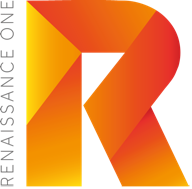Interview with Will Harris
/“The self is something – floodgates open to the constant otherness of experience – to be overwhelmed.”
In our second interview leading up to 'This, That and The Other', Will Harris discusses his work and the theme of otherness. 'This, That and The Other' will be held at the Bronte Parsonage Museum on Saturday 28 July at 7.30pm. For more information and to book tickets click here.
What 3 words would you say best describe you?
Not very pithy.
Tell us how you got into doing what you do.
As a teenager I read a poem by Wallace Stevens about peacocks the "color of heavy hemlocks", and it was mad and incantatory and different to anything I'd studied, and though it may have had palpable designs upon me it was – shorn of character, plot, dialogue, themes, "subject matter" – more like hearing a familiar bass line through a car window or smelling fried halloumi for the first time.
What was the main impetus behind you writing your recent publication Mixed Race Superman?
I wanted to write about the confusions of a "mixed race" identity – particularly as it intersects with ideas of masculinity – as a way to write about the larger paradoxes behind race-thinking (My dad is English and my mum Indonesian; I grew up thinking of myself as English, but everyone who's ever met me has assumed I'm Asian of some kind). Not out of a need to explain or define myself, but to draw out the perniciousness of that very need to know – both for other people to know who/what you are, and for people of colour to know themselves. To channel the essay's argument I focussed on two "superheroic" mixed-race figures, Keanu Reeves and Barack Obama, who, in how they approached race, have played important roles in shaping my own (non-)sense of identity.
Can you talk a little about the otherness themes that you explore within it?
I understand otherness in two ways. There's the Other as defined by Edward Said – "a sort of surrogate or even underground self" whose role is to prop up the – white, western, active, male – Self. Then there's the otherness that Emanuel Levinas discusses in terms of the "irrecusable exigency of the other, a duty overflowing my being". In both cases, the self is something – floodgates open to the constant otherness of experience – to be overwhelmed.
What creative masterpiece do you wish you could have written?
The Brothers Karamazov, so I don't have to read it. Or hmm... wouldn't it be horrible to steal a writing credit from someone whose work you really admired? Imagine taking the Buru Quartet away from Pramoedya Ananta Toer after he spent 10 years in prison writing it! Maybe I should "have written" (a tense that comes naturally to me) something I don't admire, or admire ambivalently, like Philip Roth's The Counterlife or John Berryman's Dream Songs, or Wordsworth's Prelude. But putting aside ethics, I'd gladly have written any of Simone Weil's essays or Penelope Fitzgerald's The Gate of Angels.
What's an important piece of insider knowledge you have as a creator, writer and thinker?
No sight but hindsight. The point of work is doing it. Make notes. Read the Communist Manifesto.
Tell us about an upcoming project that excites you, and how we can find out more about it.
I'm finishing a poetry book, which is exciting. And, thanks to Jaybird Live Literature, I'm going on a poetry tour with the excellent and exciting Ella Frears and Alex MacDonald in the autumn (more details here).
‘This, That and The Other’ is the headline event for the Emily 2018 (events celebrating the 200th birthday of Emily Brontë), featuring a stunning array of poets, musicians and wordsmiths, all offering their personal response to the themes of ‘other’ and the ‘outsider’; themes central to Wuthering Heights and pertinent to Emily Brontë. Join us to experience the thrill of performance, perfectly pitched speech, rousing wordplay and the art of Trinidad-style liming. With Patience Agbabi, John Siddique, Jay Bernard, Will Harris, Tobago Crusoe and Melanie Abrahams.
The event is part of a four-part series curated by Melanie Abrahams for the Bronte Parsonage Museum as part of Brontë 200.


